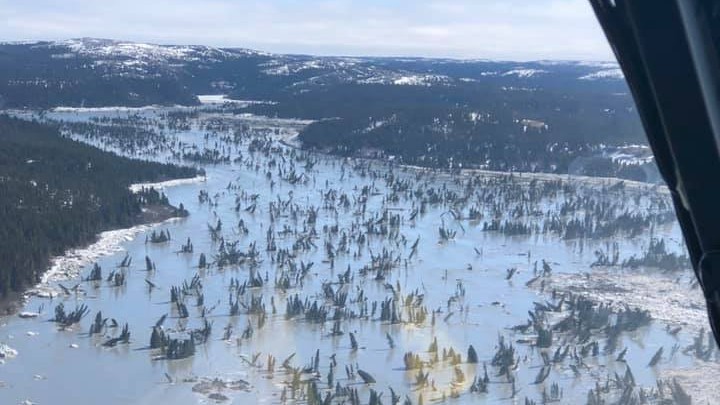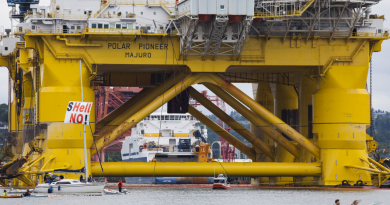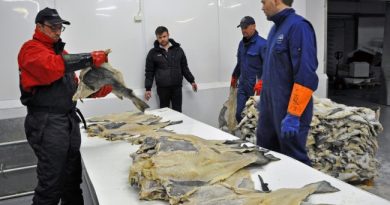Government monitoring landslide site in Arctic Quebec

The cause of last week’s landslides in northern Quebec is still unknown, but authorities from Quebec’s Ministry of Public Security in Quebec City are evaluating the location and government experts are still likely to travel to the region at some point to assess the damage.
“We’re waiting for an ariel LIDAR image that will allow us to do a more in-depth analysis of the situation,” Eric Drolet, the regional director for Nunavik at the Ministry of Public Security, told Eye on the Arctic.
“Normally we should be sending government specialists on site but at the moment, we don’t yet know when. We’re discussing it from day to day.”
LIDAR is short for “light detection and ranging.”
The system involves pointing laser pulses at a target and measuring the time it takes for light to bounce back to the receiver. These measurements allow the make up of high resolution maps and 3D models of a given area of land, ocean floors or river beds.
The two landslides happened last week in Nunavik, the Inuit region of Arctic Quebec, and affected a thick clay soil zone near the Inuit village of Kuujjuaraapik and the neighbouring Cree community of Whapmagoostui.
No immediate danger
The Kativik Regional Government (KRG), the administrative body for Nunavik, reported at the time that the landslides sent huge amounts of debris into Great Whale River approximately 9 kilometres upstream from the village.
The Kativik Regional Government’s Civil Security Department, the mayor of Kuujjuaraapik, Anthony Ittoshat, representatives of the village and experts from the University of Laval all met to evaluate the event, KRG said.
It was determined that Kuujjuaraapik’s location, 10 metres above water level, meant fllooding was unlikely and that it was in no immediate danger.
Approximately 686 people live in Kuujjuaraapik, a fly-in community on the eastern coast of Hudson Bay.
Write to Eilís Quinn at eilis.quinn(at)cbc.ca
Related stories from around the North:
Canada: Landslides on island in Arctic Canada up 6,000% since 1984, study finds, CBC News
Greenland: Greenland ice cores reveal historic climate clues, says study, Eye on the Arctic
Norway: New climate report predicts extreme warming for Arctic Svalbard by 2100, The Independent Barents Observer
Russia: The island that disappeared in Arctic Russia, The Independent Barents Observer
United States: Climate change a threat to bases across the U.S., Defense Dept. says, Alaska Public Media



